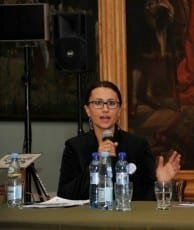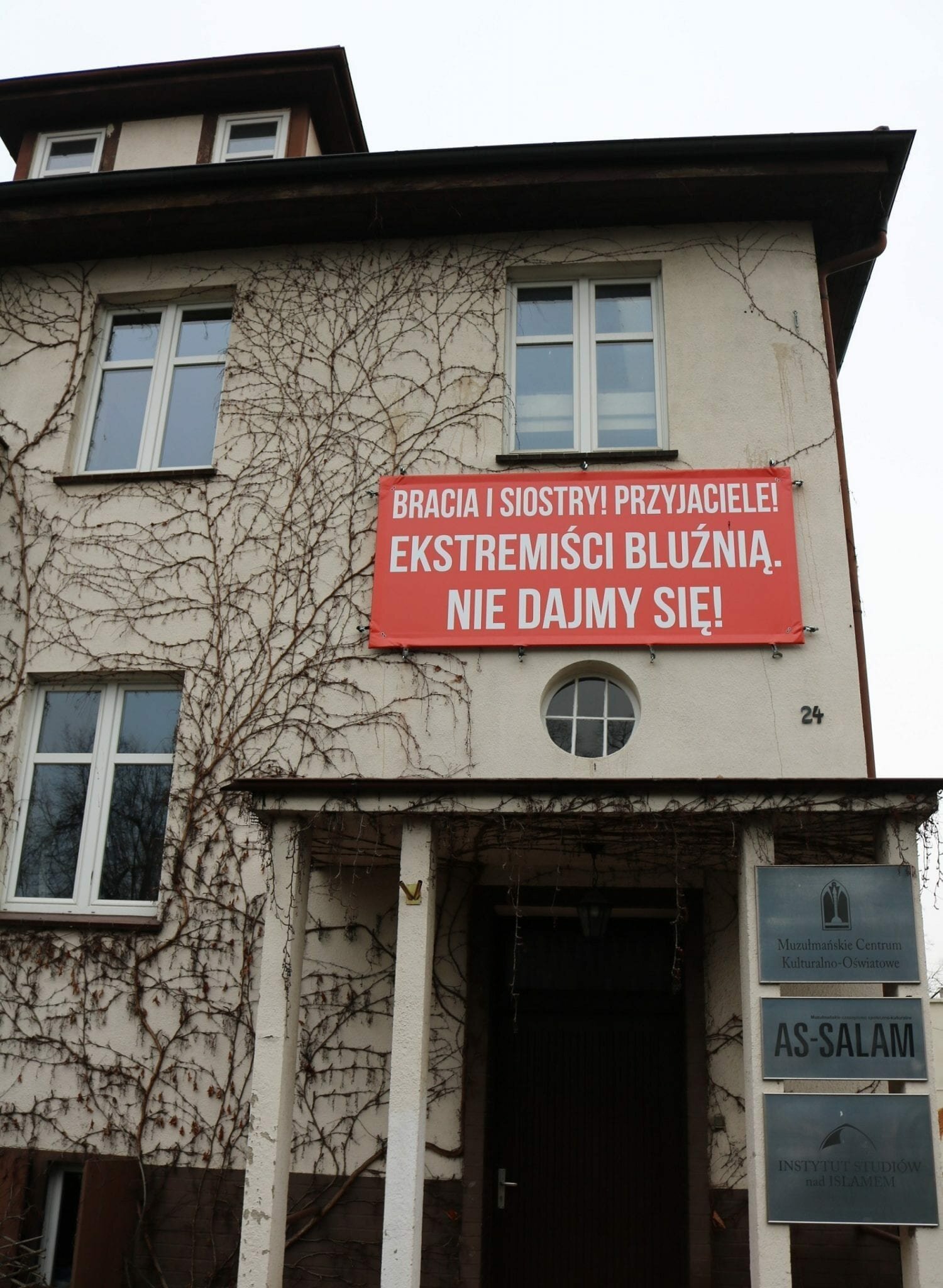Ms. Matusz-Protasiewicz, you have been dealing with the topics of migration and integration for many years. How would you assess the quality of debates in regards to those topics right now?
Migration has been discussed from a viewpoint of the emigration waves of Polish citizens after joining the EU. Only one year ago, the debate started when refugees came to Europe in large numbers. It coincided with the presidential and parliamentary election campaigns of 2015. Physically, the migrants are not present in Poland yet, but the consequences of a potential inflow of Muslim refugees are debated. We are a very homogenous country from a religious and cultural point of view. Nationalist and right wing parties are pushing the dangers of an inflow of potential migrants in the spotlight.
Do you miss a perspective in Poland that takes the opportunities of migration into account?
Europe in general is in a dilemma right now. To be able to sustain a certain economical standard, we will need migrants – especially in the field of simple services. Migrants are often employed there as local employees are not interested in doing those jobs. This is no different in Poland than it is in Germany. From a rational point of view, workforce is needed, but on the other hand, citizens are more and more opposed to the inflow of migrants.

Formulating clear goals. According to Ms. Matusz-Protasiewicz one prerequisite for successful migration policy, Author: Arthur Molt ©
Poland has been showing a steady economic growth for years – with declining birth rates. Should Poland count on migration from non-European countries?
The situation on the job market has already changed. For employers it is now easier to employ people from foreign countries. The liberalization and opening of the job market led to more Ukrainians coming to Poland. Mostly migrants from the Eastern neighboring countries find jobs in Poland.
Ukrainians are the biggest group of them. I call them “invisible migrants”. They do not need much support integrating. For the Polish state this is a very convenient situation. Ukraine represents some sort of a reservoir of workforce which is not bound to large costs for integration measures for the Polish state.
In your research, you compare the different approaches on migration policy in European Union countries. What are the positive examples Poland has to offer?
Polish migration policy is only at the beginning of its development. What is interesting though are the developments on a local level during the last two years – especially in the urban centers with a higher number of migrants. In Warsaw, Lublin, Danzig and Wroclaw the city administration established departments that organize projects for the integration of foreigners together with the citizens.
Do you believe that the concept of multiculturalism is still of any value for the debate about integration?
Already at the end of the 1990s the approach of multiculturalism has been criticized. I would not say that the concept is not valid anymore. But new concepts that stress social cohesion have evolved. Social cohesion requires people to identify with the basic set of norms and rules of the society in which they are living. Multiculturalism was criticized mainly because of the lack of requirements by the state regarding migrants’ integration.
Which requirements are you talking about?
It is about not having formulated sufficiently which norms migrants have to accept. What do we want to achieve with the process of integration? The goal of integration policy was never explained clearly. In my opinion, in European integration policy we missed that migrants can develop a connection to their new home country. In the USA for example migrants can see themselves as Americans with Polish or German background. I am speaking of a sense of belonging, a feeling of being part of the society in which I live. Be it the city, the region or the country. A feeling of being part of the whole.
How can such a feeling of belonging be achieved?
Studies show that it is easier for migrants to connect to a city or a district rather than to citizenship, a passport that signifies a connection to a certain country. It is easier to identify with local societies than with a national citizenship. The statement should be: Regardless whether you are a migrant or not, it is important to have a connection to your city. The city should be the space to invest energy in to build communities. Amsterdam and Stuttgart have been particularly effective in applying such strategies. These cities were able to convey to their inhabitants that they are all equal citizens of the City.
Will Poland develop to become an immigration country on the long run?
I think this is inevitable. All countries in Western Europe have undergone a change from countries with emigration to countries of immigration. Looking at the demographic situation in Europe and other parts of the world, I do not see the pressure of migration going down at all. The need for workforce in Europe will sustain as well. These are inevitable processes. It is just a question of the time in which this will take place.
What is the role of experiences with migration in Western Europe in the Polish debate?
It plays a huge role. Referring to the situation in Western Europe is often meant as a deterrent: “Look, they have so many migrants and do not know how to deal with them!”. Examples of migrants who work, study and have a career in Western European countries, for example in Germany, are rarely present in the Polish discourse. Negative headlines are the main focus. Thus, experiences in Western Europe are not seen as a motivation to improve migration policies. Instead, the image of a failing Western European model of integration dominates public debate. Of course, activists who work in this field benefit from international exchange. But this is a rather small group.
Will Poland be able to learn from the mistakes other countries in Europe made?
Poland should learn from that. For example, in Germany, the integration policy was developed in different phases. At first, during the times of the Gastarbeiter, then while refugees from Central and Eastern Europe came to Germany and later refugees from civil war countries. Many countries in Europe have undergone similar developments that shaped their integration policies. But Poland joined the European Union only after these events.
What would have to change in Polish migration policy?
In Poland, we have to be aware of the fact that the inflow of migrants is inevitable. If we want to be part of the European Union, then the number of migrants will rise. We should be aware of us being responsible for the migration crisis just as much as other member countries. We should behave responsibly and in solidarity regarding what is happening in Europe. The most important thing for sociopolitical behavior is to formulate our goals clearly, what we try to achieve and which developments we want to prevent.
It is – and with this I shall conclude– sad that the debate about migrants is so negative in a country with hundreds of years of experience with emigration. Every Pole knows someone in his or her family who was or is an emigrant. I think that openness and tolerance should be much bigger.
Summary
Migration – at centre of heated debates in Europe – continues to divide societies and countries in the European Union.
Should we act as individual states and consider only our own sole interests? Or can we find a common approach in the current refugee crisis? Is migration a chance for Europe's ageing population or a threat to its cultural identity?
Our perceptions differ wildly and threaten to divide two countries at the very heart of Europe - Germany and Poland - that promote alternative paths to the solution of Europe's migration crisis..
In a joint project of students of FREE UNIVERSITY Berlin and the EASTBOOK team in Warsaw, we aim to highlight the reality of migration and integration in Poland. In a series of articles, we give insight into the situation of migrant communities and their activities in Poland.
A brochure containing the articles in full length and additional information will be available in German in the end of July. We kindly invite you to join us at its presentation on 22 July. More: https://www.pol-int.org/de/projekte/dossier-migrantische-selbstorganisationen-und-migrationspolitik
***
At Eastbook, we’d like to explore some pan-European but also local transformative initiatives in more detail. We will examine the movements’ models for societal alternatives, as well as their methods for achieving them. Our goal is to identify and share sources of inspiration for regional and global change.
#commoneurope



